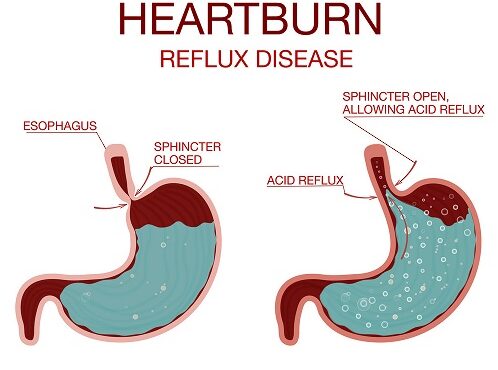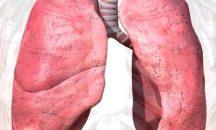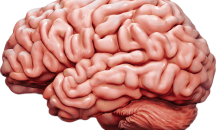Combating heartburn & fire in your belly at Christmas & beyond

Over the past few months I have noticed a worrying trend of people getting repeated episodes of heartburn as well as unbearable burning sensation in their bellies. Many of the “victims” seem to be in a long-term relationship with nonsteroidal anti-inflammatory painkillers such as ibuprofen and are often in love with high dose dispersible Vitamin C as well as lemon, spices and a host of other concoctions.
There seems to be a link with COVID-19 in this surge and especially in people who claim they had been diagnosed with peptic ulcer disease but had been perfectly fine for decades.
Peptic Ulcer Disease is commonly caused by long-term NSAID use and infection by the bacterium Helicobacter pylori (H. pylori). All other factors such as spices, cigarette smoking and caffeine consumption do not cause the ulcer BUT aggravate/ worsen the symptoms. In reflux disease referred to as “heartburn”, the band at the junction of the stomach and oesophagus (tube from throat into stomach) is weak so allows stomach contents including acid back “upstairs” where they have no business.

Quite often many people tend to self-diagnose and treat with a few bottles of an antacid and may even add prescription medication for about two weeks. Do get professional assistance because not treating peptic ulcer or reflux disease appropriately may mean years of pain and distress and even in a few instances things may progress to life-changing situations.
Our focus in this interaction is to assume you are being properly managed for your reflux disease and peptic ulcer disease. We will share lifestyle changes that are critical in speeding up the healing process and in many instances keeping it at bay for years. You surely will be thankful at least for an end to poor sleep, disturbing cough and what may appear to be an adult onset asthma together with many more.
DO THESE IN ADDITION TO WHAT YOUR DOCTOR PRESCRIBED:
1. Keep a Food Diary and keep a record of anything that you eat or drink that triggers pain in your chest or belly. This is helpful because the guidelines we give work for most people but you may have things that are peculiar to you and ONLY a food diary will unearth that.
2. Eating a balanced meal that contains vegetables, fruits and whole grains
3. Avoid nonsteroidal anti-inflammatory drugs (NSAIDs) for managing pain. These include diclofenac, ibuprofen etc. To be safe paracetamol/Panadol/Tylenol should be what you go for except when your health professional who is aware of your condition advises otherwise
4. Taking a multivitamin. This is because a vitamin or other nutrient deficiency makes healing of ulcers difficult
5. In the treatment phase I suggest you avoid alcohol
6. Do not smoke cigarettes and do not inhale (passive smoker) it either
7. Avoid caffeine in tea and coffee
8. Avoid caffeine from other sources such as chocolate and other drinks
9. Avoid fizzy drinks
10. Avoid spicy foods, which means pepper, ginger, nutmeg, onions, garlic etc. should be taken in very small quantities. I have seen tomato come up in the list of foods to avoid but I have found it difficult to understand. If you have issues when you take tomatoes then do reduce that as well but that leaves you with very few choices so I hope your food diary does not come up with tomatoes.
11. Avoid citrus fruits such as lemon, lime, oranges especially on an empty stomach
12. Be careful with fatty foods such as fried foods and most fast foods. I suggest dinner should not have fatty or “oily” foods at all especially if you belong to the heartburn squad.
a. Delicacies such as kelewele and khebab may be spicy and oily at the same time
13. Eat small frequent meals. Large meals have a way of waking up “sleeping dogs”
14. Peppermint or even drinks with the flavour tend to cause discomfort in some people. Avoid.
15. Your last meal should be at least three hours before sleep or DO NOT lie down for at least three hours after a meal
16. Keep active so you are healthy and reduce belly fat
17. Manage Stress; it exaggerates everything. Exercise, sleep, meditate, stay positive, be happy, get sunlight, show gratitude, give and give and give, get a hobby, spend time in the sun and close to nature. No one has all the answers to managing stress (a necessary evil).
Following your doctor’s treatment regime that may include antibiotics if you have H. pylori and taking some prescription medication for up to eight weeks together with these lifestyle modifications will go a long way to bring peace to your belly and quench the fire in your chest during this festive season and beyond.
AS ALWAYS LAUGH OFTEN, ENSURE HYGIENE, WALK AND PRAY EVERYDAY AND REMEMBER IT’S A PRICELESS GIFT TO KNOW YOUR NUMBERS (blood sugar, blood pressure, blood cholesterol, BMI)
Dr. Kojo Cobba Essel
Health Essentials Ltd/ Mobissel
(dressel@healthessentialsgh.com)
*Dr. Essel is a medical doctor, holds an MBA and is ISSA certified in exercise therapy, fitness nutrition and corrective exercise. He is the author of the award-winning book, ‘Unravelling The Essentials of Health & Wealth.’
Thought for the week –“A good FOOD DIARY includes everything that goes into your mouth, where you eat or drink, who you eat with and even your mood while you do that. It goes a long way to help you find the triggers to several challenges you may have.”- Dr. Kojo Essel
References:
1. Unravelling the Essentials of Health & Wealth; Dr. Kojo Cobba Essel
By Dr. Kojo Cobba Essel















